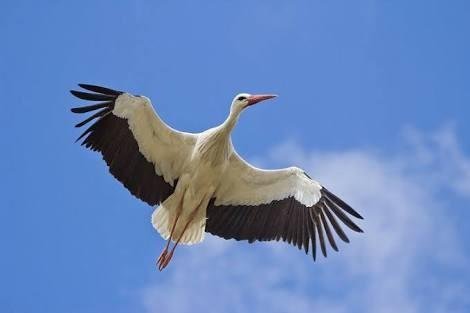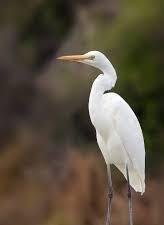Stork
Stork is the name for birds of the Ciconiidae family. The body is large, long-legged, long-necked but shorter than the heron, and has a large, strong and thick beak.
Storks can be found in warm climates. Habitat in a drier area than the Herons and Ibis. Foods are frogs, fish, insects, worms, small birds and small mammals from wetlands and beaches.
Stork does not have a syrinx sound organ so it does not sound. A pitted beak with a partner is a way of communicating to replace the voice of a call.
Storks are migratory coastal birds, flying away in a way that utilizes hot air currents to save energy. Photograph Stork flying by Ottomar Anschütz (1884) became Otto Lilienthal's inspiration to create a glider that was used to fly over at the end of the 19th century.
Stork is a heavy bird with a wide wingspan. The African species of Leptoptilos crumeniferus have a 3.2-meter wingspan, dubbed the "longest winged bird in the world" competing with Kondor birds from the Andes
The nest is used for several years, very large, diameter up to 2 meters. and depth of nest 3 meters. Stork was once thought to be monogamous, but it is not always true. Storks tend to be loyal to the nest and their partner, but may also change partners after migration.

